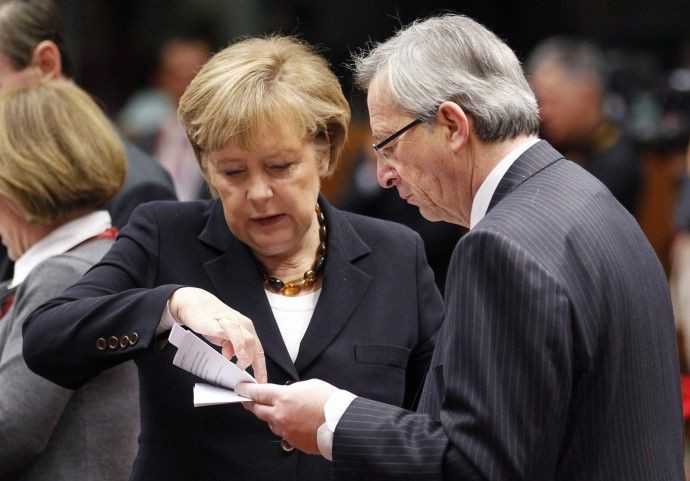EU accord on bailout plan fails to address peripheral woes

European Union leaders said last night differences over amending the EU treaties to make way for a permanent crisis mechanism have been papered over, but the market response to the development was muted as doubts still remained over key features of the deal.
In fact, much was not expected from Brussels as Germany, EU's biggest economy, had categorically said before the summit that it would strongly oppose the plan to expand the 750-billion-euro EU bailout fund as well as the proposal to create a common sovereign bond market for the euro area economies.
In the event, the leaders agreed last night that a permanent system will be set up to offer financial aid to debt-stricken countries, 'if indispensable, to prop up the common currency. However, Germany had been lobbying for tougher language, which would have made financial aid a measure of last resort. The permanent mechanism will replace the current European Financing Stability Facility (EFSF).
The member states whose currency is the euro may establish a stability mechanism to be activated if indispensable to safeguard the stability of the euro area as a whole. The granting of any required financial assistance under the mechanism will be made subject to strict conditionality, a statement released by European Council President Herman Van Rompuy said.
In tandem with the summit accord to set up the permanent crisis mechanism by 2013, the European Central Bank (ECB) announced on Thursday it was reinforcing its capital to 10.76 billion euros.
Analysts said the impact of the European accord on the market was far from euphoric. The news that EU leaders reached agreement last night on the treaty changes required to establish a “permanent crisis mechanism in 2013 is unlikely to ease pressures in the peripheral bond markets, said Jonathan Loynes, chief European economist at Capital Economics.
Loynes said the statement lacked details on the nature of the proposed crisis mechanism while it didn’t say anything about the proposal to bring in private bond holders to the bailout process.
The statement released by EU President Van Rompuy is typically vague and short on detail about the likely form of the mechanism and therefore does little to address uncertainties over the burden likely to be shouldered by private sector bondholders in the event of a debt restructure, he said in a note on Friday.
European Commission President Jose Barroso profusely praised the accord, saying: “Our task now is to hold the course, walk not talk, and prove those wrong who predicted the demise of our common currency.” Tall promises and euphoric speeches notwithstanding, the summit did little to assuage market worries about the worsening debt crisis in the peripheral countries.
Meanwhile, although there was a general discussion of the overall strategy to address the crisis, there was nothing by way of advancements to the near-term measures to maintain liquidity in the peripheral economies. If anything, the core economies’ resistance to a further increase in the size of the EFSF (bail-out fund) or the introduction of common bonds appears to be hardening, wrote Loynes.
He said the earlier reassurance that any “haircuts” would apply only to debt issued after the mechanism in place in 2013 – and only when countries are deemed insolvent – brought only limited comfort to the bond market.
This seems to leave the onus squarely on the ECB to keep peripheral borrowing costs down via further bond purchases. But while it has stepped up its operations over the last two weeks, the lack of any commitment to a particular scale of purchases in the future clearly leaves plenty of doubt over its ability and inclination to take the necessary action.
EU leaders had reached a preliminary deal in November to back a Franco-German proposal seeking amendments to the Lisbon Treaty, setting off the process of creating a permanent crisis safety net.
© Copyright IBTimes 2025. All rights reserved.





















